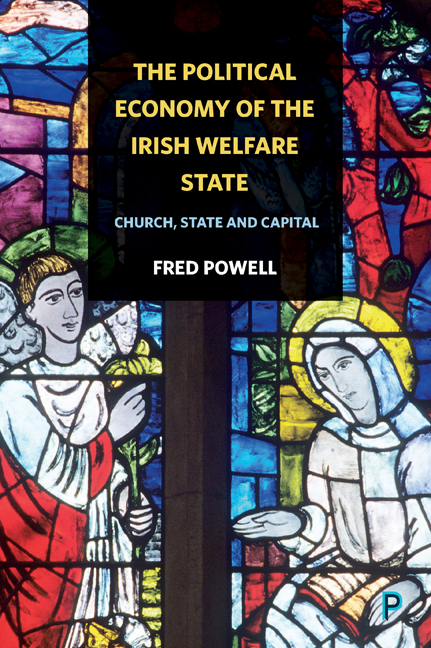Book contents
- Frontmatter
- Dedication
- Contents
- Preface
- Introduction
- one Why the welfare state matters
- two Revolution, culture and society
- three Welfare in the Free State
- four Religious nationalism, sectarianism and anti-semitism
- five The welfare state debate
- six Poverty and social inequality
- seven Liberty, gender and sexuality
- eight The marketisation of the welfare state
- nine Crisis, austerity and water
- ten Conclusion
- References
- Index
two - Revolution, culture and society
Published online by Cambridge University Press: 08 April 2022
- Frontmatter
- Dedication
- Contents
- Preface
- Introduction
- one Why the welfare state matters
- two Revolution, culture and society
- three Welfare in the Free State
- four Religious nationalism, sectarianism and anti-semitism
- five The welfare state debate
- six Poverty and social inequality
- seven Liberty, gender and sexuality
- eight The marketisation of the welfare state
- nine Crisis, austerity and water
- ten Conclusion
- References
- Index
Summary
IRISHMEN AND IRISHWOMEN: in the name of God and of the dead generations from which she receives her old tradition of nationhood, Ireland, through us, summons her children to her flag and strikes for her freedom … In every generation the Irish people have asserted their right to national freedom and sovereignty; six times during the past three hundred years they have asserted it in arms. Standing on that fundamental right and again asserting it in arms in the face of the world, we hereby proclaim the Irish Republic as a Sovereign Independent State, and we pledge our lives and the lives of our comrades-in-arms to the cause of freedom, of its welfare and its exaltation amongst the nation.
Proclamation of the Irish Republic, 1916Philipp Blom (2008) has called the early twentieth century ‘the vertigo years’, reflecting the scale and velocity of social and cultural change. He observes in relation to the character of the period:
… then as now rapid changes in technology, globalization, communications technologies, and changes in the social fabric dominated conversations and newspaper articles; then as now cultures of mass consumption stamped their mark on the time; then as now, the feeling of living in an accelerating world, of speeding into the unknown, was overwhelming. (Blom, 2008: 2)
The social and cultural changes that Blom is describing reflect, as he recognises, deeper economic changes in a world that had been reshaped by industrialisation and globalisation. The world that was taking shape during the ‘vertigo years’ of the early twentieth century was dominated by reason in the form of science and technology and the revolutionary influence of modernism on art and literature. Change was in the air. New and revolutionary ideas and movements were bubbling to the surface. There were 332 domestic newspapers and news-sheets circulating in Ireland, informing an increasingly politicised public about a myriad of topics. This information revolution, which fanned a ‘demotic politics’ of ‘satire and subversion’, has been dubbed the ‘mosquito press’ (Foster, 2014: 150). But, for others, the relationship between this new modernist vision of the world and traditional society was conflictual and very challenging. Some sought reassurance in the ‘cult of unreason’, like the cultural fundamentalists and moral traditionalists of today.
- Type
- Chapter
- Information
- The Political Economy of the Irish Welfare StateChurch, State and Capital, pp. 31 - 64Publisher: Bristol University PressPrint publication year: 2017



